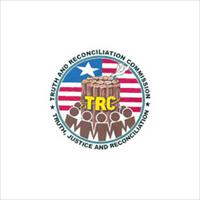LIBERIA: Truth commission seeks answers to 1979-2003 strife

Liberia’s Truth and Reconciliation Commission (TRC) has started the final public stage of hearings in a two-year process designed to determine which individuals and institutions were responsible for coups, instability and war from 1979-2003.
Unusually for a truth commission, Liberia’s TRC is permitted to recommend for prosecution individuals deemed responsible for the most serious rights violations. But officials say the most important part is the process itself.
“The public hearings are meant for victims to recount their stories and identify those who committed atrocities against them,” said TRC spokesperson Richmond Anderson.
“Subsequently those perpetrators will be called in by the TRC to face their accusers in a forum where, if necessary, the perpetrators could seek forgiveness.”
Some 24,000 written testimonies of atrocities have already been collected from victims and perpetrators in Liberia, and among refugee communities abroad. These will be used during the seven-month public hearings, Anderson said.
When it finishes its work in July, the TRC will spend three months coming up with recommendations on how Liberians should reconcile themselves, based on all the testimonies.
The nationwide public hearings were postponed several times due to cash shortfalls and logistical problems. They are scheduled to end in July, although the process can be extended by Liberia’s parliament up to an additional 12 months.
Prosecutions could be recommended
The Commission’s remit starts in 1979 when former president Samuel Doe seized power in a coup, and ends in 2003 when a major UN peacekeeping force was deployed to end a 13-year civil war.
Post 2003, Liberia was left to try and reconcile itself to widespread rapes and abuse, sometimes of whole families, committed by rebels and soldiers; the presence of thousands of child soldiers some of whom had committed mass murders; and non-existent government and public institutions.
No amnesty for former fighters was agreed when the comprehensive peace deal that set up the TRC was signed in Ghana in 2003, meaning the commission’s recommendations could include prosecutions for the accused.
Between 2003 and 2006 when the TRC started work, many Liberians lobbied for a war crimes tribunal with the power to prosecute, rather than the TRC. However, one of the first acts of Liberia’s first elected post-war president, Ellen Johnson Sirleaf, when she took office in 2006 was to rule out a tribunal and raise funds from parliament for the TRC.
No exemptions
No-one will be exempt from appearing before the TRC, as the commission is mandated under the laws that established it to compel anyone accused of atrocities to appear before it.
Some serving members of Liberia’s government and other political institutions are likely to be accused of atrocities and called to testify.
However, former President Charles Taylor, who started the most devastating 13 years of violence in 1989 by seeking to overthrow the government, will not be testifying.
He is currently on trial in The Hague where he has pleaded not guilty to 11 charges of crimes against humanity, including murder, rape and recruiting child soldiers during the brutal civil war in neighbouring Sierra Leone which spilled over from Liberia in 1991.
Taylor’s war crimes trial falls under the remit of the Special Court for Sierra Leone which does not have a mandate to try crimes Taylor may have committed in Liberia. There is no special court for Liberia.
Understanding “what happened”
The TRC mandate is to "investigate gross human rights violations and war crimes, including massacres, sexual violations, murder, extra-judicial killings and economic crimes (such as the exploitation of natural or public resources to perpetuate the armed conflict),” according to the Liberian law enacted on the TRC.
The commission is also intended to provide “an opportunity for victims and perpetrators of human rights violations to share their experiences, in order to create a record of the past and facilitate genuine healing and reconciliation".
“It is instrumental for people to have some mechanism whereby they can retain the memory of what happened,” said Tina Thorne, a post-conflict justice expert at the Centre for Humanitarian Dialogue in Geneva.
“I don’t think it is just symbolic - it is important. It should be an account of what happened. When mass atrocities have happened, some kind of truth-revealing process is necessary to help victims and society generally to understand what happened and to be able to have access to information about what happened during the conflict.”
Political will
The question of political will is going to be key once the TRC reaches the stage of making its recommendations and drawing up a possible list of prosecutions, said Priscilla Hayner, head of the International Centre for Transitional Justice’s Geneva office.
“Political will is the weakest link when it comes to truth commissions,” she said. “After the commission goes home, who is going to carry it forward, and is the government going to be committed to implementing it,” she questioned.
In neighbouring Sierra Leone, several years after the end of a similar commission, almost none of the recommendations have been implemented. Respecting the recommendations of the TRC was one of the main campaign pledges of Ernest Bai Koroma who won presidential elections in September 2007.
Nonetheless, Hayner said, public hearings at TRCs are important in themselves “because for the first time people can gauge and watch” what is happening and what happened to others.
“I’m sure there are powerful stories being told, as the vast majority of people have incredible stories about what the war did to them and it was so pervasive and brutal,” she said.
 Back and Next - Back and Next
Back and Next - Back and Next See Also - See Also
See Also - See Also